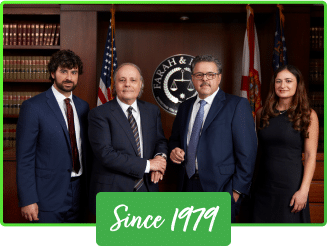Valsartan Attorneys
If you or a loved one has been reliant on Valsartan to control hypertension and was affected by the Valsartan recall, you may be eligible for compensation. Class action lawsuits are ongoing against the manufacturers of the recalled drugs due to the increased risk of cancer and other medical complications arising from the need to switch medications.

FREE CASE REVIEW
Home > Defective Drug Attorneys > Valsartan Attorneys
What Is Valsartan?
Valsartan is a medication used primarily to treat hypertension (high blood pressure). It can also be used to treat conditions that are caused or affected by hypertension. Valsartan is the generic name of the medication. Its most common trade name is Diovan, which is sold by Novartis International, Inc. Other companies produce medications that use valsartan combined with other active ingredients.
Conditions Caused by Hypertension
High blood pressure primarily affects the heart and arteries because it increases the heart’s workload, but it can also adversely affect blood vessels throughout the body. Hypertension can cause such conditions as:
- Strokes
- Hypertensive encephalopathy
- Hypertensive retinopathy
- Elevated sugar levels
- Heart attack
- Heart failure
- Chronic renal failure
Reducing blood pressure can lower the risk for these conditions. If someone has already had a heart attack, lowering blood pressure can increase the likelihood of living longer after experiencing a heart attack.
Symptoms of Hypertension
Hypertension can be symptomless for years but still cause damage to the heart and blood vessels including:
- Enlarged heart
- Thickening or hardening of the arteries
However, since these symptoms are not exclusive to hypertension and can signify various conditions, even affected individuals might not associate them with high blood pressure. These symptoms, if they manifest at all, typically appear only in cases of severe, life-threatening hypertension.
Detecting Hypertension
Hypertension affects many people but is very easy to detect. Doctors routinely check patients’ blood pressure during appointments to monitor for signs of high blood pressure. Caught early, hypertension can be treated in order to prevent the medical conditions that can develop if it’s left untreated.
Causes of Hypertension
Primary hypertension has no specific cause and tends to develop in adults as they age. Primary hypertension is also called essential hypertension. Secondary hypertension is the type of hypertension that is caused by another medical condition. These can include:
- Thyroid problems
- Obstructive sleep apnea
- Any congenital (from birth) defects that affect blood vessels
- Kidney problems
- Tumors in the adrenal glands
- Illegal drugs, especially amphetamines and cocaine
Additionally, some medications can be the cause of secondary hypertension. Medications, such as:
- Some prescription medications
- Birth control pills
- Over-the-counter pain relievers
- Decongestants
- Cold remedies
Who Is at Risk for Hypertension?
Many factors contribute to a patient’s risk of developing hypertension. These factors include:
- Age
- Stress
- Pregnancy
- Family history
- Race
- Tobacco use
- Smoking
- Being obese or overweight
- Too much salt in the diet
- Too little potassium in the diet
- Being physically inactive
- Too much alcohol
- Some chronic medical conditions
While hypertension is primarily a risk in adults, children who have problems with their kidneys or heart can develop hypertension as well. Poor lifestyle habits can contribute to hypertension in both adults and children.
Treating Heart Failure
While Valsartan is primarily a hypertension medication, it’s also used with patients after they have had a heart attack. It’s used to treat heart failure and failure of the left ventricle. When the heart is not pumping properly, it can cause the pooling of blood in the lungs.
How Does Valsartan Work?
Valsartan is an angiotensin II receptor blocker, also known as an ARB. This means that it works by blocking the hormone angiotensin II, which tightens blood vessels and increases blood pressure, from binding to the AT1 receptors, also known as the angiotensin receptor. By preventing angiotensin from tightening blood vessels, valsartan relaxes them, thereby also lowering blood pressure. The lower blood pressure then allows the heart’s supply of oxygen and blood.
Side Effects of Using Valsartan
Like all medications, using Valsartan to treat hypertension or heart failure comes with the risk of some side effects. Some of the side effects are severe and require medical attention. Patients experiencing serious side effects should immediately alert their doctor. Other side effects are not so severe and do not require medical attention.
Side Effects That Do Not Require Medical Attention
Some side effects of valsartan are considered less serious and do not require medical attention. These side effects are usually the patient’s body growing accustomed to the medication and will clear up independently as the patient adjusts. These side effects can include:
- Coughing
- Diarrhea
- Headache
- Back pain
- Stomach or other abdominal pain
- Muscle pain
- Muscle stiffness
- Difficulty in moving
- Blurred vision
- Joint pain, swelling, or redness
- Flu or cold-like symptoms
- Rarely, hair loss or hair thinning can also occur
Serious Side Effects of Using Valsartan
Other side effects are signs of something more serious. Patients experiencing these symptoms should alert their doctor immediately because they can require medical treatment. These side effects can include:
Side Effects
- Weight gain
- Loss of appetite
- Vomiting
- Tiredness
- Weakness
- Decreased urination
- Bloody urine
- Cold sweats
- Confusion
- Fainting
- Difficulty breathing
- Dizziness
- Faintness
- Lightheadedness
- Lower back pain
- Pain in the side
- Increased thirst
- Irregular heartbeat
- Nervousness
- Nausea
- Tingling or numbness in lips, hands, or feet
- Swelling in the face, lower legs, or fingers
Rare Side Effects
- Chills
- Sore throat
- Hoarseness
- Fever
- Sudden difficulty swallowing or breathing
- Hands, feet, or mouth swelling
Extremely Rare Side Effects
- Tiredness
- Weakness
- Dark urine
- Yellow eyes
- Yellow skin
- Light-colored stools (feces)
- Stomach pain
- Abdominal pain (in the upper right)
$2+ BILLION IN RESULTS

FDA Recalls
In July 2018, the FDA announced that several manufacturers of Valsartan-based medicines were voluntarily recalling their products due to the discovery of impurities. The contamination, first identified in 2018, involved batches of Valsartan tainted with one of two carcinogenic substances: N-nitrosodimethylamine (NDMA) and N-nitrosodiethylamine (NDEA). Consequently, the FDA mandated the recall to ensure patient safety.
Additional Recalls
As of 2022, the recall has expanded to include multiple lots of other drugs in the same class as valsartan, known as angiotensin II receptor blockers (ARBs). This decision followed the discovery of N-Nitroso-N-methyl-4-aminobutyric acid (NMBA) in some of these medications in March 2019. According to the FDA, the recall now encompasses specific losartan and irbesartan products, in addition to those containing valsartan. Medicines identified as part of the recalls are:
- Valsartan
- Losartan
- Ibesartan
- Azilsartan
- Olmesartan
- Eprosartan
- Candesartan
- Telmisartan
What Companies Issued the Recalls
The contaminated batches, produced by Zhejiang Huahai Pharmaceutical Co. Ltd. and Zhejiang Tianyu in China and Hetero Labs in India, were intended exclusively for the U.S. market. These batches have likely been manufactured since 2012, following the patent’s expiration, leading to the availability of generic versions of the drug in the U.S. since 2014.
The Valsartan distribution companies issuing the recall are:
- Aurobindo Pharma USA, Inc.
- Camber Pharmeceuticals, Inc.
- Mylan Pharmaceuticals Inc.
- Solco Healthcare
- Teva Pharmaceuticals
- Torrent Pharmaceuticals
The recalled medications encompass both Valsartan and Valsartan/hydrochlorothiazide combinations. However, brand-name drugs containing valsartan, such as Diovan, Entresto, Exforge, and Exforge HCT, are not currently included in the recall.
Risk of Switching Medication
The recall has left some patients without further access to Valsartan-based medications that they relied on to control their hypertension. However, not all Valsartan-based medications were affected by the recall, and there are other similar medications that the patient’s doctors can prescribe instead. However, blood pressure should be monitored carefully, as patients may respond differently to a different medication.
Risk of Cancer from Valsartan
The chemical NDMA is an ingredient in liquid rocket fuel, lubricants, and softeners. It can also be produced as a by-product of chemical reactions in making some pesticides, rubber tires, and fish processing. Humans exposed to it in large amounts are known to suffer liver damage. While some believed that there was no significant risk of cancer from Valsartan products, other doctors immediately switched patients off of Valsartan-based medications, not wanting to take the risk.
The most significant risk of cancer for patients taking Valsartan is correlated to the dosage received. Patients who have taken higher doses of Valsartan or who have taken Valsartan over more extended periods may be at a greater risk of developing cancer.
Cancers Linked to Valsaran
An increased risk of developing various types of cancer has been associated with Valsartan use. These cancers include:
- Stomach cancer
- Intestinal cancer
- Colorectal cancer
- Esophageal cancer
- Liver cancer
- Pancreatic cancer
- Leukemia
- Multiple myeloma
- Non-Hodgkin’s lymphoma
- Prostate cancer (before age 65)
Litigation Against Valsartan Manufacturers
A class action lawsuit has been filed against Valsartan manufacturers in the United States. These lawsuits allege that the companies involved in the Valsartan recall were negligent in their quality control of the Valsartan medications. NDMA may have contaminated the medicines as far back as 2012, risking the health of thousands of patients.
How Many People Have Been Impacted by Contaminated Valsartan
The FDA estimates that 1 in 8,000 people on high doses of NDMA-contaminated medications for four years might develop cancer. Affected patients and third-party payors are suing manufacturers for compensation related to medical bills, suffering, and loss of quality of life.
Litigation Status
As of July 2024, there are 1,254 pending valsartan lawsuits and a total of 1,421 cases filed. To date, no jury verdicts or known settlements have been reached. These cases are consolidated into multidistrict litigation (MDL) in the U.S. District Court of New Jersey and are ongoing. The MDL also includes other drugs, such as losartan and irbesartan.
What if My Medication Was Part of the Recall?
If your Valsartan-based medication was recalled, the first step is to contact your doctor to switch to another non-contaminated medication. The doctor may be able to advise you on lifestyle changes or other treatments that may reduce your reliance on a Valsartan-based medication.
Additionally, with your doctor, assess potential medical conditions that may have arisen from taking Valsartan. These include cancer and liver or kidney damage. You should also evaluate the possible health complications and side effects of switching medications.
Should I Consider a Valsartan Lawsuit?
If you have been prescribed a Valsartan-based medication that was part of the recall and have experienced health complications as a result, it may be worth considering filing a Valsartan lawsuit. These lawsuits aim to hold the manufacturers accountable for their negligence in allowing contaminated medications to reach the market. Additionally, they seek compensation for any medical expenses, suffering, and loss of quality of life caused by taking these tainted drugs.
What Criteria Are Required To File a Valsartan Lawsuit
If you believe you may have been adversely impacted by Valsartan and would like to consider filing a lawsuit, consider whether or not you meet the following eligibility criteria. First, you must have used one of the recalled products for a minimum of 1 year between 2015 and 2019. Additionally, you must have been diagnosed with one of the following types of cancer in or after 2017:
- Stomach cancer
- Intestinal cancer
- Colorectal cancer
- Esophageal cancer
- Liver cancer
- Pancreatic cancer
- Leukemia
- Multiple myeloma
- Non-Hodgkin’s lymphoma
- Prostate cancer (before age 65)
Consult with a legal professional to determine if pursuing a Valsartan lawsuit is the best course of action for your specific situation.
How Do I Find a Valsartan Lawsuit Attorney?
If you believe that you meet the eligibility criteria and would like to file a Valsartan lawsuit, finding an experienced attorney specializing in pharmaceutical litigation is crucial. Farah & Farah’s expert team has the knowledge and expertise to navigate complex medical and legal issues related to Valsartan use. We can fight for fair compensation on your behalf.
Contact Farah & Farah to speak with one of our highly experienced attorneys who specializes in medical lawsuits. The consultation is free, and you will pay nothing unless your case is successful.














FREE CASE REVIEW
